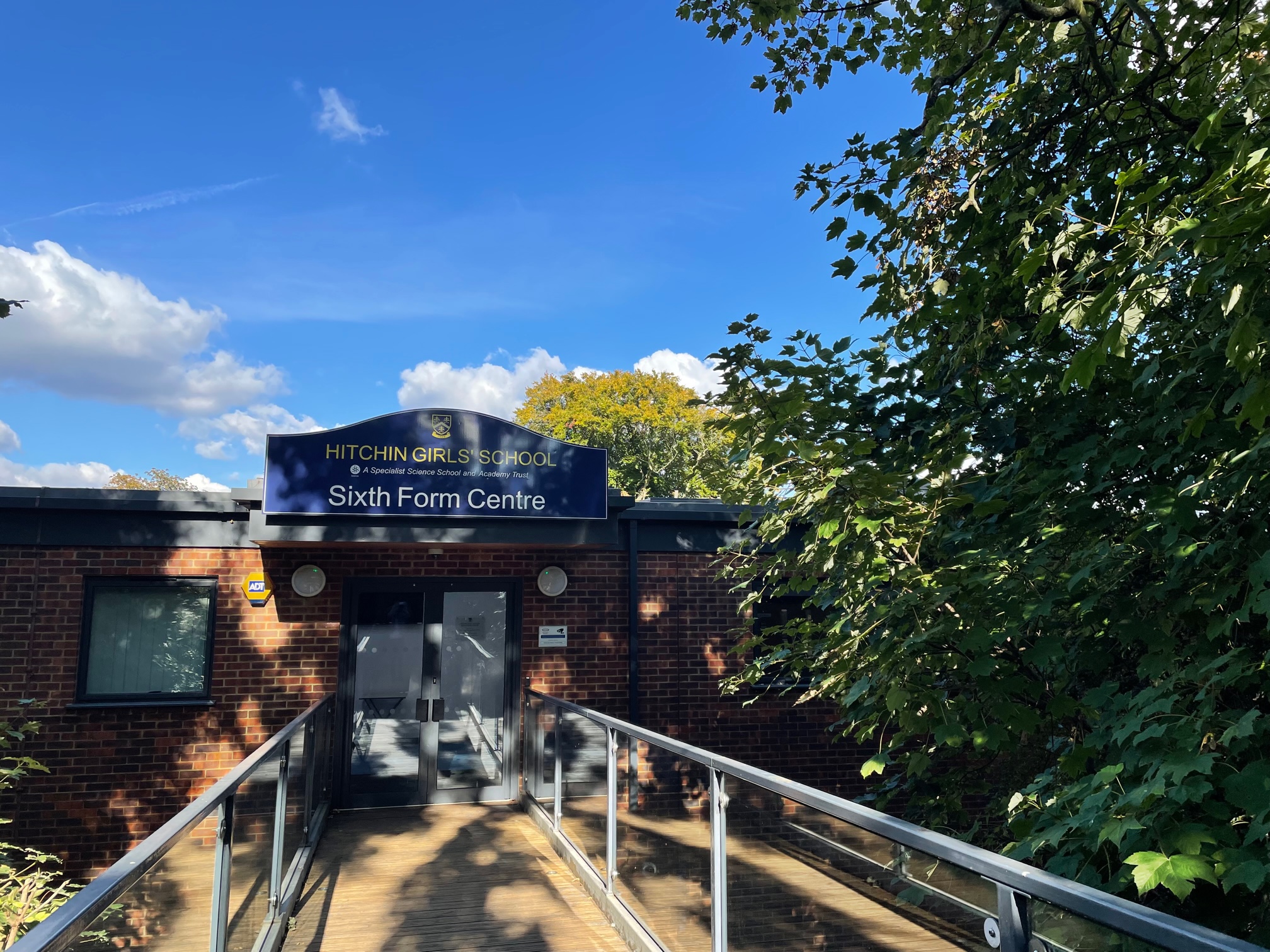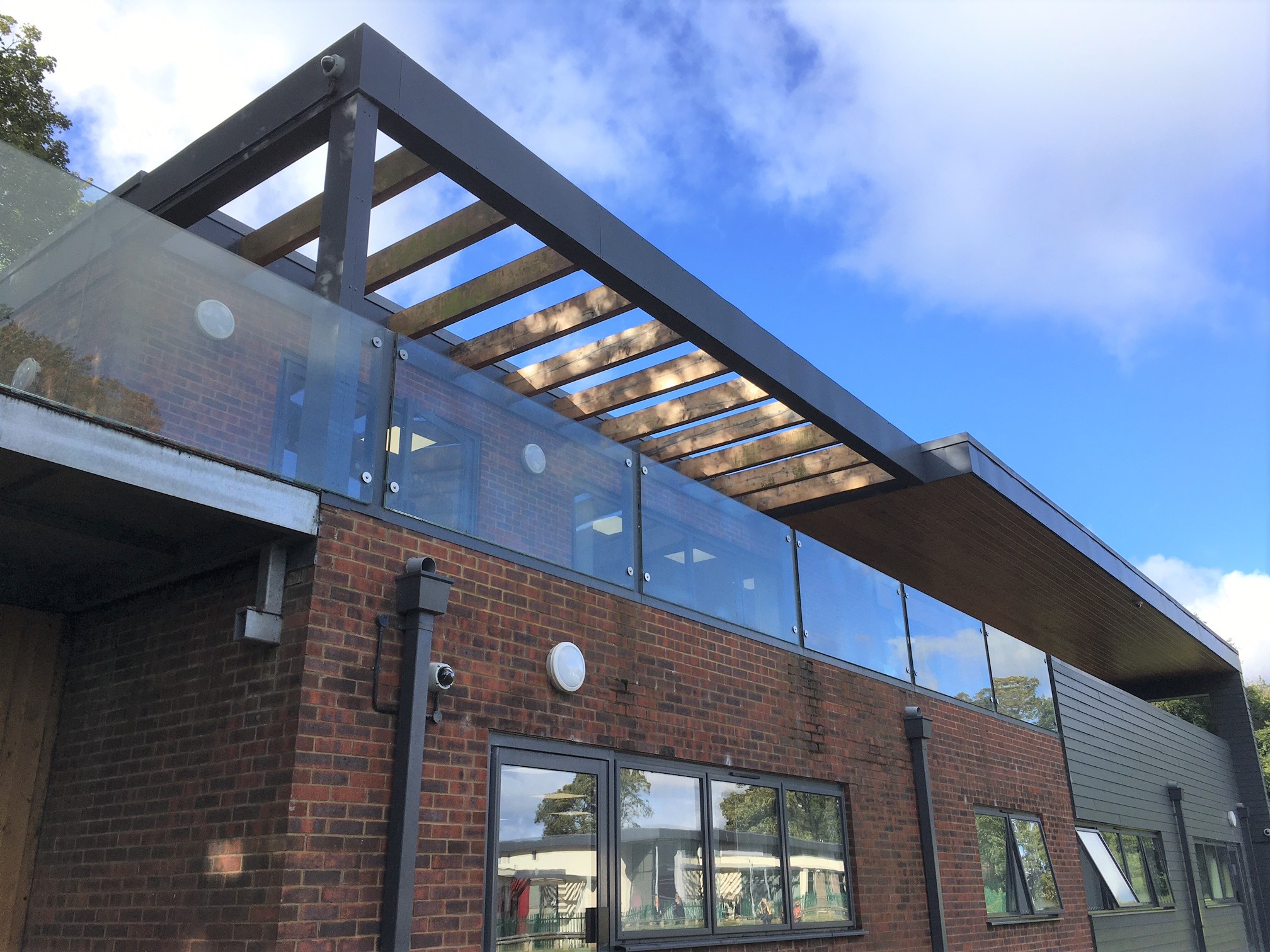Life in the Sixth Form
The Sixth Form has a pre-university-style culture with high expectations and challenges, but equally high rewards at the end. It constitutes the best days of schools for many students.
We have high expectations of our students as we want them to make the most of every opportunity on offer. There is a firm set of procedures to ensure that standards are met at all times. Attendance is monitored closely and processes are in place to contact parents and carers if there are any concerns.

Facilities
We have a large, purpose-built Sixth Form Centre. Upstairs is a silent study area, and there are classrooms downstairs. Sixth Form students have exclusive access to our Morbeans Cafe.
During the school day students can choose where they want to study, similar to a university environment. A structured tutor programme and progress monitoring help students to fulfil their potential in their chosen areas.
The school is also well served by WiFi and we encourage all students to bring in a laptop or other device for studying. Most departments make full use of Google Classroom for sharing resources and managing tasks.
The school day
The school day starts with Form Time at 8.40 so that tutors can support students daily and distribute necessary information. This is followed by five one-hour lessons, with the last lesson finishing at 3.30. Students are expected to use their study periods during the school day to complete set tasks, consolidate their learning and undertake wider reading to supplement their studies. They are expected to use these study periods effectively and complete at least five hours of independent study per subject per week – so time management is extremely important. We recommend that students do not engage in more than eight hours of paid employment per week.
Enrichment
In addition to subject lessons there are enrichment activities timetabled, consisting of a fortnightly assembly and hour-long lesson. These focus on a range of topics, including study skills, post-18 options, careers, personal development and preparing for life after school.
As well as the formal programme, all departments encourage subject enrichment to enable students to develop their passion for their chosen fields. This can include the use of MOOCS, extra reading recommendations, lectures and trips. This is particularly supported through Unifrog, which provides a single point of reference for wider reading around subjects.
Outside of their studies, Sixth Form students enjoy substantial freedom and opportunities to participate in many extracurricular activities. We have highly successful senior sports teams, many subject-based clubs and societies, and music ensembles that students are encouraged to join and often lead.
Students also have the opportunity to go on many curriculum-based trips, as well as the chance to participate in work experience during the Summer term to gain transferable skills.
Throughout the two years in Sixth Form, students will complete a Student Enrichment Passport chronicling their many activities, which is certificated at the end of Year 13.
Community Ambassadors and Learning Champions
Community Ambassadors and Learning Champions are volunteer roles - Community Ambassadors volunteer in the local community whereas Learning Champions volunteer to help support departments and clubs within the school.
If you are a full-time student you will be expected to complete one hour a week of Community Ambassador or Learning Champion work on top of your studies.
If you are doing Sports Leaders, a fourth subject or an EPQ you will NOT be required to complete the one hour of voluntary work as your timetable is fuller than other students'.
However, we strongly recommend undertaking some voluntary work less frequently throughout the year for your UCAS statement. You can choose whether that is in the community or in a subject area.
Taking part in a volunteer programme is important for a number of reasons. It helps grow your confidence at talking and working with new people; it helps you to organise your time; it helps you to promote your love of a subject or activity; and it provides you with an opportunity to show universities, employers and apprenticeship providers that you are a well-rounded individual that has lots to offer besides academic excellence.
So what is involved in each type of role?
Community Ambassadors
Examples include: volunteering at a food bank; running a Brownies class; running a dance class; running a music class; being a sports referee; reading to students at a primary school; giving art or language classes at a primary school; helping an elderly neighbour with shopping and gardening; volunteering as a pen pal at a care home.
Learning Champions
You need to pick a subject department or the Pastoral Department to help out. Examples include: running clubs; assisting in lessons; improving the displays in subject areas; tutoring GCSE students; being a Pastoral peer mentor.
You really do have an impact in school and in the community - every year we get lovely messages from business owners, the public and our teachers about how amazing the volunteers have been and what a difference they have made. To celebrate these achievements we hold a tea party each year in the Summer term, where we thank students for all their efforts and share all the lovely messages we have received throughout the year.
If you have any queries about Ambassadors or Champions please do get in touch with Mrs Taylor via email: emma.taylor@hgs.herts.sch.uk
Placements for Learning Champions and Ambassadors are organised in September once students' timetables are finalised.
What our students say
“The Ambassador programme has helped me in my choice of the kind of career path I would like to follow.”
"Being an HGS Ambassador has allowed me to elevate my presentation and communication skills. It has enhanced my time-management and organisation, as it is your responsibility to plan and prepare for any sessions that you are running. Biology Ambassador has taught me to think creatively when trying to come up with ideas that will be engaging and inspiring to Year 7s."
"In my Ambassador role, sharing my knowledge with a younger student who appreciates the help has been very rewarding, and I would recommend it to every future Year 12 student. Some days it’s about more than just the academic side, it gives the student someone new to talk to and an extra friendly face around the school. It has also helped me develop personal skills, like perseverance, when trying to help a student who is struggling to understand something; dedication and commitment to show up every week; and listening and interpersonal skills."
"I am a Library Ambassador and a reading buddy as part of that. Being a reading buddy is really empowering as you get to see the younger student's reading ability and confidence grow. But it also means you get closer to them in the process, which gives them someone to trust and go to if they need help with something around the school."
"Sitting in lessons has made me realise how much HGS has helped me grow up and the dramatic change in confidence I have gained. I believe this experience given to me has allowed me to be confident with the girls in the class, as well as being a friendly face for them."
"I volunteer at North Herts Music School in two music groups. I teach younger children to play the viola and violin. It is a lot of fun as I really enjoy helping them learn and grow as players."
"Being an Ambassador has developed my confidence and has kept me engaged with the younger years of the school."
"It gave me an opportunity to develop my communication skills whilst I was teaching some key mathematical concepts to Year 7 students, and it proved to be an enjoyable experience."
"I really like my Ambassador role because I enjoy helping the younger students, but it also helps to consolidate some of my own knowledge from lower down the school."
“These are such rewarding activities - they are not just really fun, they also teach me necessary skills for the future, such as social skills, teaching skills and teamwork skills.”
"Volunteering at a nursery school helped me to develop a sense of responsibility, creative thinking, compassion and leadership qualities."
“Being an Ambassador teaching your favourite subject makes you feel more independent as well as helping the students grow.”
“I really enjoyed becoming an Ambassador for HGS. I volunteered at a local primary school. It was lovely to be greeted with smiles from the children every Friday morning.”
“It feels rewarding to be able to answer the questions from students, when you were asked the same things in their year - especially when they then go on to use those techniques and applications in their work.”

